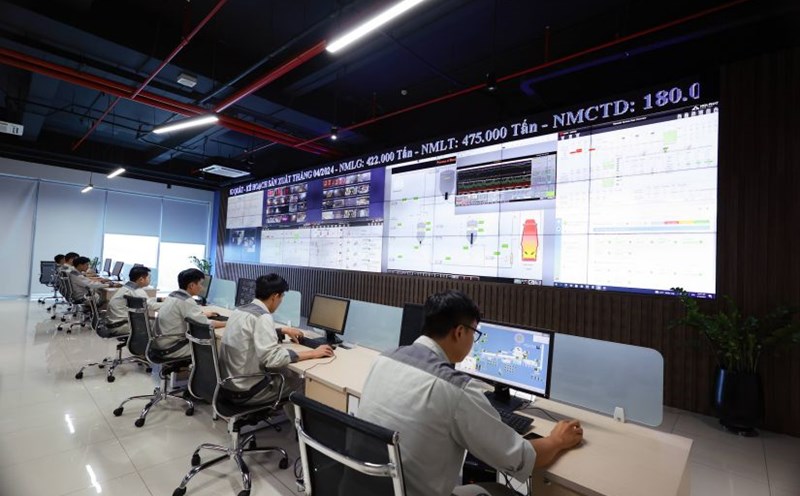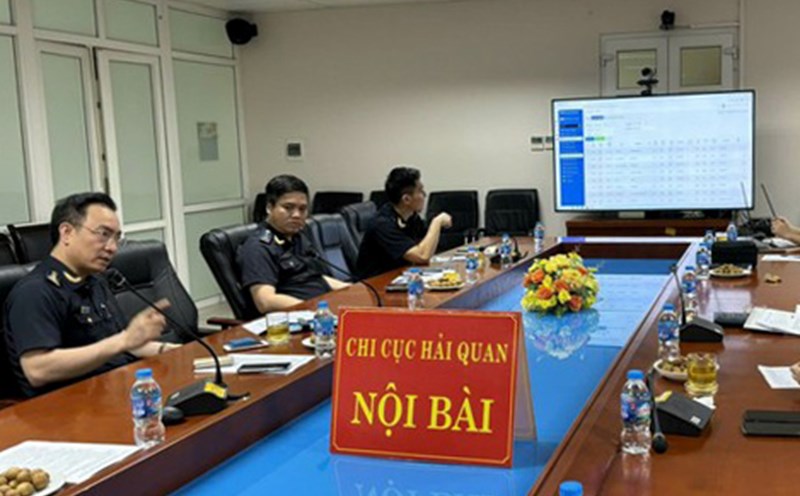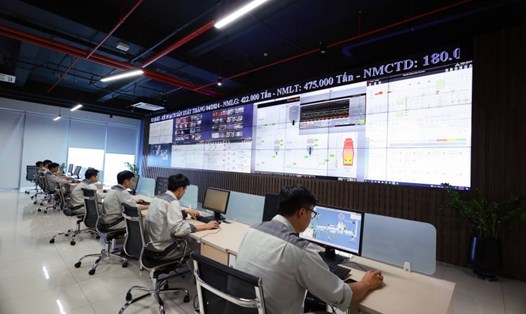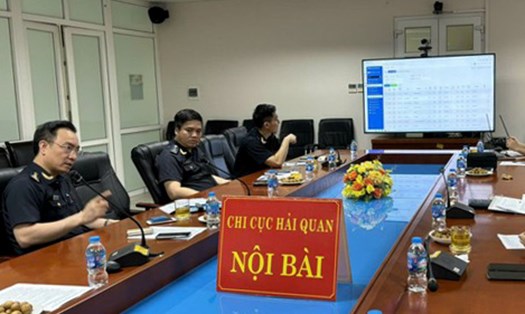Establishing “digital production methods”
The article states: “Digital transformation is not simply the application of digital technology to socio-economic activities, but also the process of establishing a new, advanced and modern production method - “digital production method”, in which the characteristic of the productive forces is the harmonious combination of humans and artificial intelligence; data becomes a resource, an important means of production; at the same time, production relations also have profound changes, especially in the form of ownership and distribution of digital means of production”.
The profound significance of the process of forming digital production methods is expressed in very new perspectives:
Firstly, this is the first time that new technologies that have been deeply involved in today's biggest changes such as artificial intelligence (AI), Internet of Things (IoT), cloud computing (cloud...) are defined as new production tools.
Second, data has been defined as a resource, an important means of production. This requires changes in the form of ownership and distribution.
Third, is the harmonious combination between humans and artificial intelligence. This means that despite the strong development of technology, human values are not lowered, technology and artificial intelligence are not lowered or over-emphasized. Humans own and manage technology, and in turn, technology serves humans and serves production. Digital transformation must become an important driving force for the development of productive forces and the improvement of production relations.
Fourth, the digital transformation process needs to be carried out comprehensively and synchronously, taking into account the dialectical relationship between infrastructure and superstructure, in order to build a socialist-oriented market economy, both promoting the strength of modern productive forces and ensuring the good nature of the socialist regime, suitable to the specific conditions of Vietnam in the new era.
Fifth, digital transformation is the transformation of the way of working, coordinating, serving people, customers and businesses, opening up new methods in social governance, creating new tools in state management, fundamentally changing the way of interaction between the state and citizens, between social classes.
Sixth, the role of the leader. Digital transformation must start with the leader's will. The leaders of the Party committee, government, agencies, businesses and people must be fully aware, unified, responsible and determined to carry out the digital transformation process.
A New, Breakthrough Resolution is Needed
In the article “Digital transformation - an important driving force for developing productive forces, perfecting production relations, bringing the country into a new era”, General Secretary To Lam mentioned a breakthrough Resolution on innovation of production relations.
That is Resolution No. 10-NQ/TW dated April 5, 1988 of the Politburo on innovation of production relations in agriculture when officially recognizing households as autonomous economic units and granting long-term land use rights to farmers, in accordance with the development requirements of the productive forces.
After only one year of implementing the Politburo Resolution, Vietnam, from a country with chronic food shortages, produced 21.5 million tons of rice and exported 1.2 million tons of rice for the first time. The appropriate adjustment of production relations created new momentum for the development of production forces, helping the country overcome the crisis and enter a period of comprehensive innovation and international integration.
Ten years ago, the Politburo issued Resolution No. 36-NQ/TW dated July 1, 2014 of the 11th Politburo "On promoting the application and development of information technology to meet the requirements of sustainable development and international integration". This is considered a premise for the Politburo to issue important Resolutions, having a broad impact on Vietnam's digital transformation process. Then, in 2019, the Politburo issued Resolution No. 52-NQ/TW dated September 27, 2019 on a number of policies and strategies to proactively participate in the fourth industrial revolution, which was then realized by decisions of the Prime Minister, identifying the important role of digital transformation in the new era.
Implementing the above Resolutions is very important in the process of socio-economic development of the country. And the digital transformation process will certainly not stop but will be applied more strongly, from digital transformation to digital production methods to perfect production relations, bringing the country into the era of rising up as expected and desired by General Secretary To Lam.
At the Conference to collect opinions on 3 Projects to be submitted to the Politburo organized by the Central Economic Commission and the Ministry of Information and Communications on September 12, 2024, many opinions mentioned the need to develop a new breakthrough resolution on digital transformation. Currently, the Ministry of Information and Communications is presiding over the development of 2 Projects to be submitted to the Politburo: Project to summarize 10 years of implementing Resolution No. 36-NQ/TW dated July 1, 2014 of the 11th Politburo "On promoting the application and development of information technology to meet the requirements of sustainable development and international integration" and the Project Resolution of the Politburo on national digital transformation, development of digital economy - digital society.
According to the assessment and expectations of experts and researchers, the new resolution on digital transformation will be “Resolution 10” on digital transformation in the new era. In which, the emphasis is on the digital production method proposed by General Secretary To Lam.
















